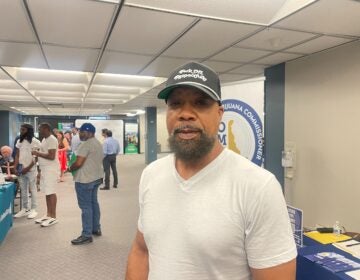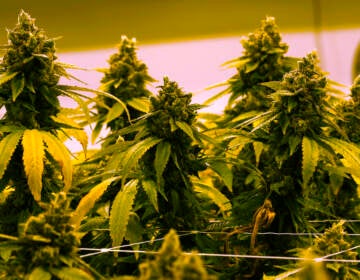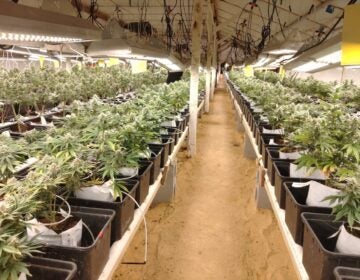Delaware moves to kick-start retail weed industry and give $6.2M to social equity licensees
State officials say letting medical providers begin growing marijuana this fall will let the retail industry open in April. Others say it gives them an unfair boost.
Listen 1:58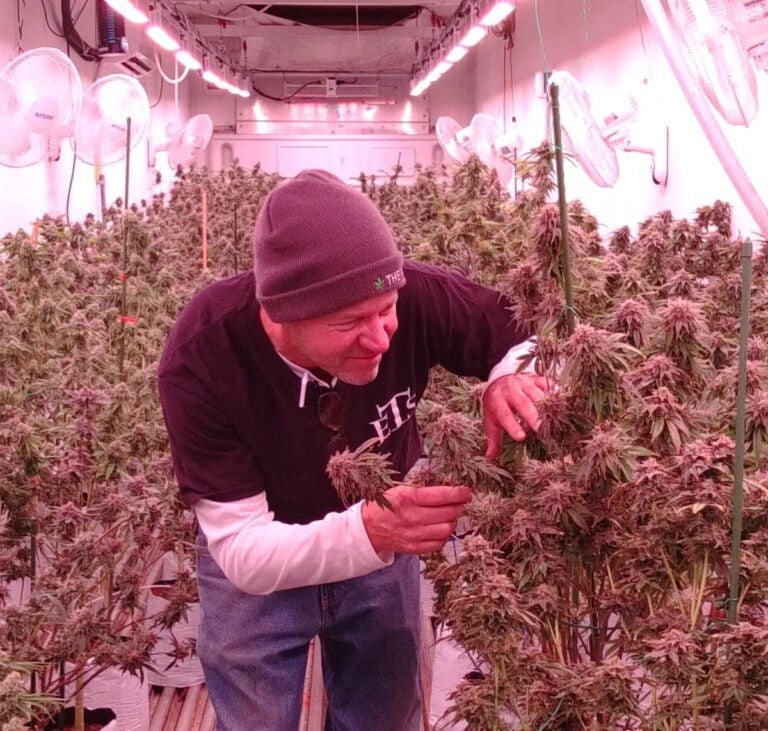
David Rohrer of The Farm tends to marijuana plants. The company is eligible for a conversion license. (Courtesy of Bill Rohrer)
From Philly and the Pa. suburbs to South Jersey and Delaware, what would you like WHYY News to cover? Let us know!
For the last 15 months, Bill Rohrer has been itching to start growing marijuana to fuel Delaware’s coming recreational market.
Rohrer is a partner in The Farm, a medical cannabis business with two cultivation sites, a facility that makes edibles and other products and retail stores in Felton and New Castle.
But when lawmakers legalized weed in April 2023, they didn’t follow the lead of New Jersey, Maryland and some other states in allowing medical businesses to kick off recreational sales.
“It feeds the illicit market is what it does,’’ Rohrer told WHYY News a year ago as legal users had to continue engaging in illegal activity — buying weed from in-state dealers or transporting it across state lines from legit stores in nearby states.
That’s about to change.
A bill that lawmakers passed in June and Gov. John Carney is expected to sign in the coming weeks lets Delaware’s six medical weed licensees apply for so-called conversion licenses to grow, manufacture, test and sell retail cannabis.
Those licenses will be issued starting in November, allowing Rohrer to start growing weed that he can sell at The Farm’s retail stores, perhaps as early as April 2025, and to others who receive retail licenses.
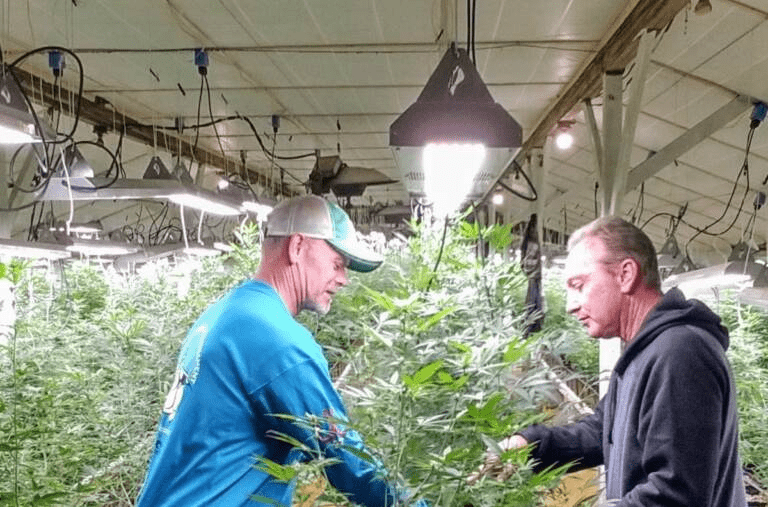
Without that bill’s passage, said Marijuana Commissioner Rob Coupe, the start of retail sales would have been delayed until sometime in 2026. Applicants who receive the new cultivation licenses will take up to a year longer to get their operations going, and then to grow crops for retail sale, he said.

Delaware’s new course “creates a much faster pathway to get the adult-use market operational … to make marijuana legally available for the average citizen to buy,’’ Coupe told WHYY News.
Beyond accelerating what Coupe acknowledges has been a slow, laborious process in creating regulations and a licensing process, allowing conversion licenses could pump up to $4.2 million into a new fund to help so-called social equity applicants, who are slated to receive 47 of the 125 licenses. The $4.2 million would come from application fees for conversion licenses.
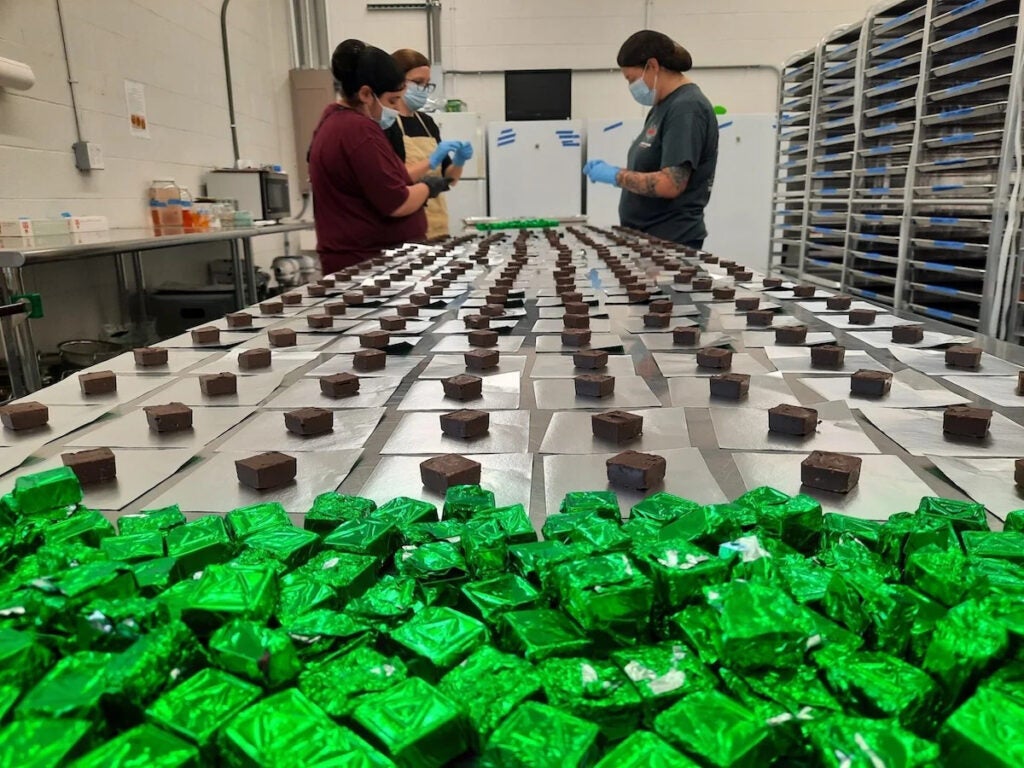
Lawmakers also allocated an additional $2 million into the fund for aspiring social equity cannabis entrepreneurs. To qualify, they must own at least 51% of the business and meet one of these criteria:
- Been convicted of a marijuana-related offense, as long as it wasn’t for selling more than 11 pounds or dealing to a minor
- Had or has a parent, legal guardian, child, spouse or dependent who was convicted of a marijuana crime
- Lived for at least five of the last 10 years in a “disproportionately impacted area.” In essence, that’s a defined census area where marijuana arrests have been high in the last decade. Applicants can see if their address qualifies on the state’s website
The conversion licenses that Roher and other medical licensees sought permission to seek won’t come cheaply.
The cultivation licenses cost $200,000 apiece. To get one for manufacturing, testing or retail, the cost is $100,000.
Rohrer said he appreciates that lawmakers accepted the rationale of the medical licensees this year, and plans to spend up to $800,000 for conversion licenses: two for cultivation, one for manufacturing, two for the existing retail stores, and perhaps one for a new store in Sussex County.
But he says it won’t be an easy proposition in a retail market that faces stiff competition from border states. Medical weed sales in Delaware dropped significantly last year when Maryland opened its retail stores.
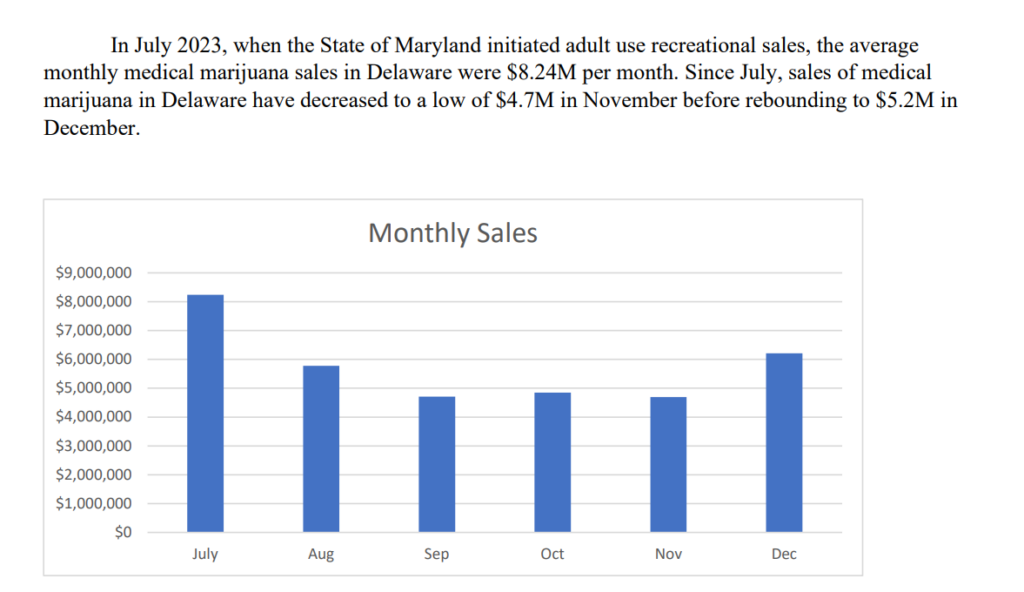
“We find ourselves in somewhat of a perplexing situation,” Rohrer said. “We’re excited about the growth, but it’s a very daunting expansion and need for capital investment. So that’s kind of the dilemma that we’re in.”
Practical compromise or ‘unfair competitive advantages’?
While Rohrer worries about affording the conversion licenses, Zoë Patchell of the Delaware Cannabis Advocacy Network said he and the other medical providers shouldn’t even be getting that chance.
Patchell’s group had argued to lawmakers that the conversion licenses would give the medical providers an edge over new licensees, and bemoaned the fact that their wishes were granted.
“It creates special unfair competitive advantages for six exclusive businesses by creating guaranteed vertically integrated licenses that are not offered to any other new business applicants,’’ Patchell said.

Patchell said the state could have created a streamlined process from the outset that would have had retail sales begin sooner but instead chose the lengthier process. She also said medical sales suffered because prices are cheaper across the state line.
The bottom line for Patchell is that companies who get to cultivate first are “going to absolutely crush any new businesses that come into the market.”
Coupe countered that the state aims to negate that advantage by requiring those who get conversion licenses to sell leaf marijuana and other products to new licensees at wholesale prices.
“Our hope is that the new retailers, those who have a good business plan, have the financial backing, will be able to get their storefronts ready,” and then open their shops at the same time as the existing medical providers begin selling retail weed, Coupe said.
Rep. Ed Osienski, the Newark-area Democrat who has sponsored the weed bills, said he understands Patchell’s concerns but stressed that compromises have been necessary — last year just to get the legalization and regulatory bills passed after several years of failure and this year to move the process forward by getting the crops started sooner.
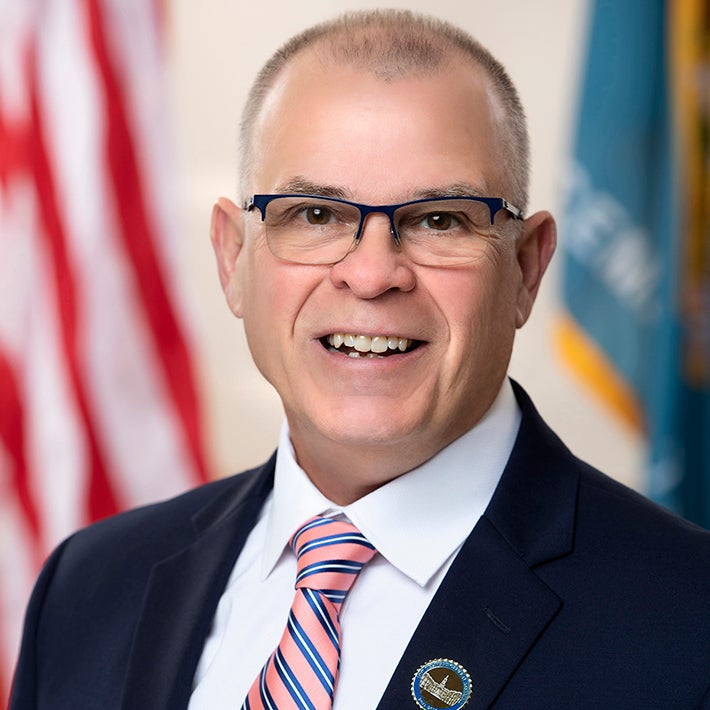
“People that are aware of what it takes to get into this industry realize cultivation is the toughest,” Osienski said. “It’s a bigger investment because you need to put all the infrastructure in, such as lighting and ventilation. It’s quite an endeavor and it takes more time, unlike just opening up a retail store where you just find a location within a shopping area or whatever and you put in some shelving and some security and you pretty much get going.”
The best solution “to fill the gap,” Osienski said he ultimately decided, was to turn to those who already have licenses and facilities to grow weed and make gummies and other marijuana products.
‘I actually want to be a legal entity that’s paying taxes’
The costs to get started promise to be even more prohibitive for social equity applicants, so Osienski says he’s satisfied that fellow lawmakers have paved the way to provide up to $6.2 million in grants to those who are granted licenses.
Coupe says his office will be working on guidelines and amounts for grants in the coming months.
Ethan Whitsett hopes to be one of the social equity licensees, and to tap the pool of money to get rolling.
The 28-year-old Dover man, who has worked in maintenance for a chicken plant, has a marijuana arrest from his teenage years. But he once spent time with an uncle in California who grew his own medical marijuana.
“I’d never even seen a weed plant in person until then, but he taught me some things about the nutrients, watering them, training them,” Whitsett said. “That’s kind of where I got into it a lot, maybe not on a huge scale, but I actually got to see first-hand and try and help him with his cultivation.”

Whitsett hopes to get cash from family members or investors but is grateful that Delaware has followed the lead of other states by offering social equity licenses as well as a financial hand.
“I actually want to be a part of society,” Whitsett said. “It’s not like I want to be in the black market my whole life. I actually want to be a legal entity that’s paying taxes, able to help the community.”
“The whole social equity is about creating opportunities for people that were oppressed by the cannabis prohibition. It’s the state actually acknowledging the fact that, ‘Okay, we have legal stores operating, we should get these people a chance to be part of this too.’”

Get daily updates from WHYY News!
WHYY is your source for fact-based, in-depth journalism and information. As a nonprofit organization, we rely on financial support from readers like you. Please give today.



